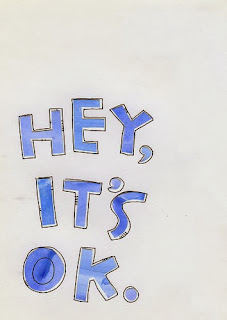 Why do people drop out of college? Why would anyone sacrifice their education and their future? Why, why, why?
Why do people drop out of college? Why would anyone sacrifice their education and their future? Why, why, why?This question has been pondered, discussed, and dissected over the years by counselors, educators, and parents alike. There really is not a single, concrete answer.
Life happens, things happen, plans (however well constructed) change. Sometimes things are just out of our control. Sometimes things become too much to bear.
No, this is not a cry for help, I am most definitely not considering dropping out of school, but I have been there before, I have made these tough decisions and I am hoping to shed some light on the reasons why students drop out.
I see it everyday at my desk, a student comes in and says they want to drop all their classes, we are trained to talk them through their options, not ask why or tell them that it is a terrible idea. We are there for support, to help them realize the resources available to them, and to help them understand the future repercussions of dropping their classes (financial aid, completion rate, etc).
In that moment, I wonder what could be happening in this persons life to make them feel like they cannot succeed in their classes, are they overwhelmed by the course load? Perhaps they have had a change in their work schedule, or family structure. Maybe they just don't think college is for them. The makeup of this population is also interesting, it is either very young, first time in college students, or the middle aged population who are trying to balance full time work, family, and school. I rarely see people my age (mid-late twenties) dropping out.
 |
| My dorm room! |
Looking back, as a student about to graduate, while I am still slightly embarrassed by my "college sleepover" as I will call it, I feel as though it made me a better student in the long run and helped me realize that I would rather live at home and commute than be on my own. I have a lot of friends who loved their college experience, I love my experience too, but in a different way. But hey, that's okay.







